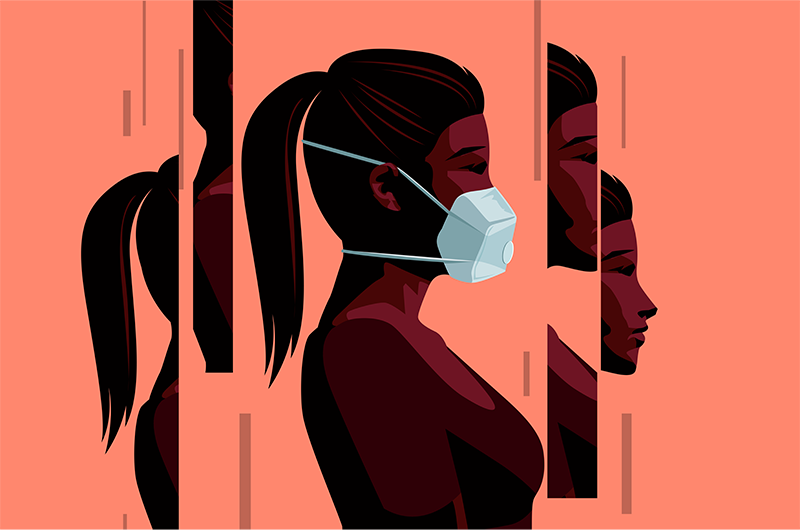Pandemic leads to spike in domestic violence cases
May 31, 2020
Americans have been stuck at home for the past few months to slow the spread of COVID-19, and sure, some people are bored and lonely, but at least they are safe–which is hard to say for others. Home is not a safe place for everyone, and for domestic violence victims, the pandemic has managed to make their situations even worse.
The COVID-19 pandemic has caused an increase in domestic violence cases because of two things. First, social distancing forces victims to be trapped with their abusers in close quarters for an undetermined amount of time, and second, the pandemic is causing increased amounts of stress. Unemployment rates have risen along with COVID-19 cases, and as a result, the economy is not doing too great. Many people are stressed because they might lose their jobs, if they have not lost them already, and they worry they will not be able to support themselves; this includes abusers. According to the Council on Foreign Relations, “Abusers could experience heightened financial pressures and stress, increase their consumption of alcohol or drugs, and purchase or hoard guns as an emergency measure.” Abusers are more likely to take out their stress and anger on the people closest to them, meaning that during the pandemic, an increase in domestic violence cases is inevitable.
When victims are faced with domestic violence, they have several options available to them: they can call the National Domestic Violence Hotline, walk out of the relationship, or go to a shelter before getting back on their own two feet. If they are not willing or able to leave the relationship, they can also spend a few days away from home, with friends or family, before returning. These options are not available anymore, as the pandemic has simultaneously shut down all of these safety nets. Due to social distancing, going to another person’s house is often out of the question, and multiple shelters have shut down for similar reasons. Hotlines are still in order, but in some cases the victims are so close to their abusers that they are unable to use them. In New York and Los Angeles, the police have seen a drop in calls and believe it is due to the fact that victims are unable to make calls secretly. However, Chicago has seen a 12% increase in calls. According to The New York Times, “During the first week of March, 383 people called a domestic violence hotline in the city [Chicago]. By the end of April, the weekly number had soared to 549.”
In addition to partners, children can also become victims of domestic violence. The combination of having nowhere to go and the heightening stress of the pandemic causes a lot of residual violence that children are forced to endure. According to The New York Times, “In April, phone calls to the Childhelp National Child Abuse Hotline increased 17% over the same period last year,” but sadly, that is not the worst of it. These children who have no way out are trapped inside with their abusers, and even though the number of calls has spiked, it is likely that there are still many unreported cases. Normally, adults outside of the household, such as teachers and healthcare workers, report child abuse cases, not the children enduring the violence. Since these adults are not in contact with the children anymore, they are unable to find out about the abuse that is taking place, and it goes unreported.
People are staying home to keep themselves and others safe, but there are some who are suffering through this quarantine; that is the sad reality of the situation. There is no way to deny that lockdown is very effectively protecting people from the virus and saving many lives, but for victims of domestic violence, social isolation makes life even more dangerous.
If you are in immediate danger, call 9-1-1. For anonymous, confidential help, 24/7, call the Fairfax County Domestic Violence Action Center (DVAC) Hotline at 703-360-7273 or the National Domestic Violence Hotline at 1-800-799-7233 (SAFE).



